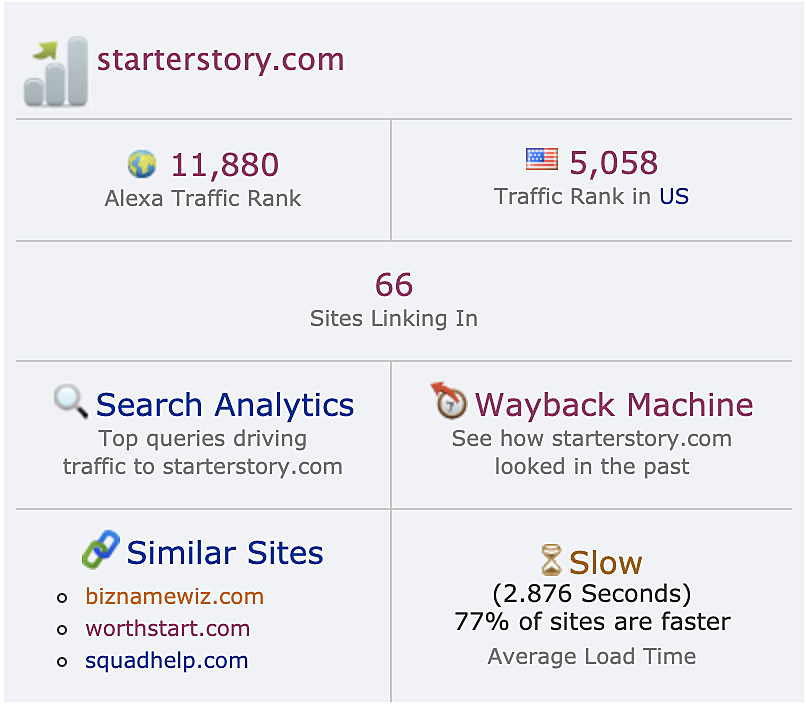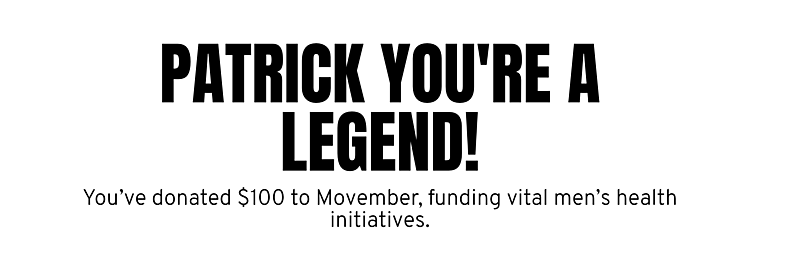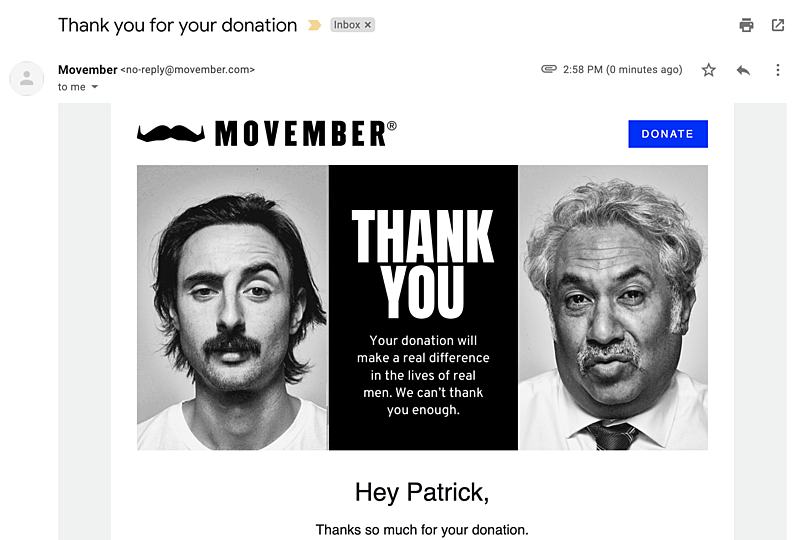2020 marks the third year since quitting my full-time job, and with tradition, I’m doing a year-end blog post (
2018,
2019).
It’s always mindblowing to look back at just 12 months and see how fast things changed. 2020 is no different, and it’s arguably my most life-changing year.
As far as the business, Starter Story grew to $30K/month in revenue and 500k monthly visitors.
But more impactful than the growth in my business was the growth in myself. I grew a lot as a person.
Here’s the real story: The growth in my business is actually the result of the growth in myself.
My biggest learning in 2020? That I am my own greatest obstacle.
In 2020, I experienced real burnout for the first time. And through that experience, I learned a lot about myself and made some hard decisions, which ultimately led to my business growing 200%.
Here’s the story:
January
I burst into 2020 with an intense drive and motivation to make two different businesses successful:
I was living at home with my mom (yes, at 29) to save on expenses.
I told myself I could make both businesses successful through (1) laser focus and (2) hard work. I was confident I could balance both of them as a solo founder.
Started writing daily
Every morning, or night, I’d set aside a few minutes (or sometimes hours) to write something.
My goal? To get way better at writing.
My rule? To write and publish something
on my blog every single day.
If I miss a day? I have to donate $20.
Turns out, this daily writing habit would help me grow in ways that I never imagined, but we’ll get into that later :)
COVID-19
In March, COVID-19 happened.
In a matter of days, my investment portfolio halved, traffic dipped 40% for Starter Story, and dozens of customers cancelled their Pigeon accounts.
It was a very scary time for me. There were many days with no new customers and no new sales…
I felt paralyzed. I couldn’t peel my eyes away from the news. I knew something had to change:
On March 19th, I
wrote this:
"Stop being fearful. You need to go all in. You don't want to look back at this and wish you did this or that. Just take what you were doing before - and go even harder. Stay focused, energetic, passionate - and avoid the news."
Figuring I would be quarantined for the next couple of months, I put my head down and got to work.
I worked nonstop on my businesses and adapted them quickly to COVID. Stuck inside all day, I worked 12 hour days and every single weekend for two months straight.
Burnout
But the hardcore hustle mindset couldn’t last forever...
In May, I hit a breaking point.
The truth is… I was working myself to the bone, but my businesses were just “staying afloat”. They weren’t growing or dying, just on the
long, slow ramp of death.
And this is when the burnout started.
How did it feel?
I had so many projects and tasks I knew I should do, but at the same time, I felt unmotivated to start any of them.
“I’m in this really weird spot right now. I don’t feel very motivated about work. Nothing feels “important” to work on. I don’t feel like tweeting or writing. I don’t want to read any books…”
The problem with burnout is that it’s hard to identify right in the moment. At the time, I just felt unmotivated and apathetic. It lasted for weeks (longer than usual).
I started to look for solutions. I heard about Bill Gates’
Think Weeks. I asked my other entrepreneur friends for ideas.
Harry Dry suggested I take some time off.
So I did.
The Think Week
I got in my car, in the middle of the pandemic, and just started driving.
I had no destination.
My goal? To drive until I felt re-energized and ready to go back to work.
As I drove across deserted highways, I just sat there, thinking, for hours.
How could I fix it?
My first solution: “I’ll just work harder.”
But that didn’t feel like enough. I kept driving.
As days passed, I kept driving and thinking and driving and thinking...
And it finally hit me:
“I’m neglecting the biggest business opportunity of my life: Starter Story!”
Starter Story could be huge if I gave it the time it deserved.
I realized Starter Story is actually the far better business opportunity, for me. It’s way better suited to my skills.
I wouldn’t be successful if I kept splitting my time between two different businesses.
Pigeon was my “ego business”, the one that I wanted to work out so badly. The business that could get me into YC. The business that was “cooler”. It was always my dream to build a successful B2B SaaS.
But Pigeon was actually a really hard business to make work, as a solo founder. So much support. So many features. So much competition. So much churn.
The writing was always on the wall, but I just pushed through because I thought I could make it work through sheer willpower.
But that was my ego, clouding my judgment and preventing me from thinking rationally.
It seems so obvious in hindsight, but it was the Think Week that helped me take a step back, and reflect.
I ended up driving 3,000+ miles across 10 days, across the western side of the United States, through Utah, Nevada, California, Oregon, Washington, Idaho, Montana, and Wyoming.
I’m not sure I would have come to this conclusion without it. At the end of my Think Week, I
wrote:
“These 10 days off were the best thing I could have done, and I’m so happy I did it - it gave me time to think, reflect, and recharge.
Summer & A New Agenda
Fully recharged, I got straight to work. Motivated as hell.
My sister lost her job in the pandemic, so I brought her on full time to help at Starter Story.
We put our heads down and went full time on Starter Story, making some big changes and improvements fast:
These were all things I wanted to do before, but never found the time. I was too busy balancing multiple projects.
$10K/Month
And this new focus? It paid off, fast!
This is the power of working on just one thing. Channeling all of my energy into Starter Story produced results immediately.
I was in awe of how one small change in my mindset could change everything so much!
And this was the moment where Starter Story really started taking off.
I can't thank my sister enough + the rest of the Starter Story team for how much impact they had on Starter Story's growth this year. It was your advice and ideas that truly grew the business. I just had to listen.
New York City
If you don’t mind, I’ll take a bit of a detour into my personal life, but I assure you this ties back to the business.
In summer, it was time to go back to NYC.
I still feel like I had something to finish there, as I left abruptly in 2018 when I quit my full-time job.
Unfortunately, this was in the middle of the pandemic, and everyone told me I was crazy to move there, as the city was hit so hard with COVID...
This might sound crazy, but NYC turned out to be the best place for a pandemic:
All restaurants moved into the streets like you’d see in some European city. There were no tourists. Everyone who didn’t want to be there, left. There were no packed bars or clubs.
And because NYC has great transit and is so walkable, so many people spent time outside, at parks, running, etc.
I spent 4-6 hours outside every day, walking and running along the west side Highway, reading books, going to coffee shops, writing, etc.
I spent more time active and outside than any summer of my life. Funny how that works with COVID, right?
I also learned how to play tennis. I discovered a small tennis community at some public courts and ended up playing every single day for 3 months straight, sometimes even twice a day.
Best. Summer. Ever.
I met a girl
Around this time, I met my (now) girlfriend Kristen.
We’d actually met a year before, we crossed paths while traveling, in Vietnam, but the timing was off.
She lives in Florida, and that is why
I moved to Florida! I know it sounds crazy, but it’s right.
Typically I don’t blog much about romance, but I do have something meaningful to say:
I spent most of my life waiting for “the one”, the perfect person.
"There is no 'one'. A great relationship is really about compatibility and communication. Finding someone that you can chill with, have a great conversation with for hours, and someone who believes in you."
It’s the same in business and other parts of life. You can sit back and wait and hope for that perfect opportunity, but it will likely never be perfect enough.
The perfect opportunity is actually right in front of us. We just need to open our eyes.
There is no 'one'. The only way to find 'the one' is to cultivate it yourself. That means we have to be proactive, commit to something, and work on it every day. And that has nothing to do with them, only with you!
That’s what makes a great relationship.
I Am My Own Greatest Obstacle
What I realized in 2020 is that I am my own greatest obstacle.
All my problems in business? They tie back to me.
My own ego was blocking my success. I wanted a SaaS to work so bad, and that was clouding my judgement. I couldn’t face the truth. And I was afraid to fail.
In other words, I was lying to myself. I imagine other founders have gone through this, too, which is why I’m writing about it.
How to solve it?
The first (and the hardest) step, for me, was simply identifying the problem.
What worked for me in 2020? Writing every day.
Writing is how I identify my fears, ego, insecurities, etc. Writing is how I solve problems, business and personal. Writing is what drove me to doing the think week.
Writing is how I solved my problems this year. Writing is how I grew as a person. And Starter Story grew as a direct result of writing every day.
Writing doesn’t have to be the answer, though. The key point is that writing helped me go internal, to look inside, and understand myself better.
Meditation, journaling, therapy, fitness, personal improvement, quality time spent with family & friends. I think these are actually the solutions to most of our problems.
I think that’s the silver lining of COVID: forced isolation helped me become more introspective, which led to serious personal growth.
And personal growth led to business growth. After the Think Week, Starter Story grew faster than I ever imagined.
By November, traffic was up to 500k/month and revenue $25k/month.
And even with Starter Story growing healthily, I was able to work so much less. I was able to focus on my personal life, on my physical and mental health, and spend time with family and friends and my girlfriend.
And that’s my 2020. I am my own greatest obstacle. I choose my own fate. I choose the values I want to live by. And I am the root of my failures and success. Only I can fix it.
Note: I hope this story serves as a bit of a cautionary tale for other founders, creators, and entrepreneurs. I wrote this from the perspective of me, but in reality, Starter Story is a team of people, and I do very little of the work. We are a team of 6 now, and it’s all thanks to Sammy, Gemma, David, Maribel, and Anjali for all of their hard work and that we were able to grow so much! Thank you!!
2021
Last year, I
set a goal of hitting 500k monthly visitors and $30k/month in revenue.
At the time, those goals sounded crazy, but somehow we actually hit it!
Our goals for 2021: Grow Starter Story to 5M monthly visitors and $100K monthly revenue.
It won’t be easy, but I look forward to new challenges and working toward it every day.


